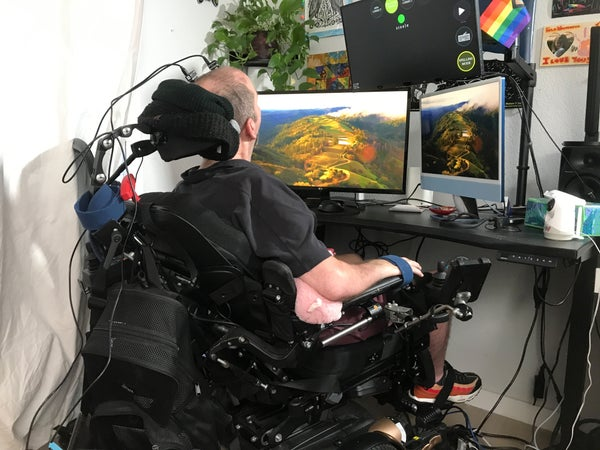"Informed AI News" is an publications aggregation platform, ensuring you only gain the most valuable information, to eliminate information asymmetry and break through the limits of information cocoons. Find out more >>
New technology in brain-computer interfaces helps patients with amyotrophic lateral sclerosis regain their language abilities.
- summary
- score

The research team at the University of California, Davis, has developed a new type of brain-computer interface technology that can convert brain signals into speech with 97% accuracy. This technology brings hope to patients with language disorders such as Amyotrophic Lateral Sclerosis (ALS). In the study, a 45-year-old ALS patient, Kathy Harell, successfully expressed her thoughts through a device implanted in her brain.
The technology implants sensors in the brain to interpret brain signals during speech, converts them into text, and then has the computer read it out. Harell conducted 84 experiments over 32 weeks, engaging in over 248 hours of autonomous conversations through the system. The system's initial accuracy was 99.6%, stabilizing at 97.5% after training.
The research team plans to apply the technology to more patients in the coming years and expand its capabilities, such as adding intonation and singing abilities. Despite challenges such as portability and infection risks, the high precision of this technology offers hope to those who have lost their language abilities.
| Scores | Value | Explanation |
|---|---|---|
| Objectivity | 7 | 内容客观,全面报道,深入分析。 |
| Social Impact | 5 | 内容引发广泛社会讨论,显著影响公众意见。 |
| Credibility | 6 | 内容不仅可信,还经过独立验证,并得到多源确认。 |
| Potential | 6 | 内容具有极高潜力,几乎必然导致重大变化或事件。 |
| Practicality | 5 | 内容极其实用,已在实践中广泛应用并��取得良好效果。 |
| Entertainment Value | 3 | 内容有一定娱乐价值,能吸引部分观众。 |